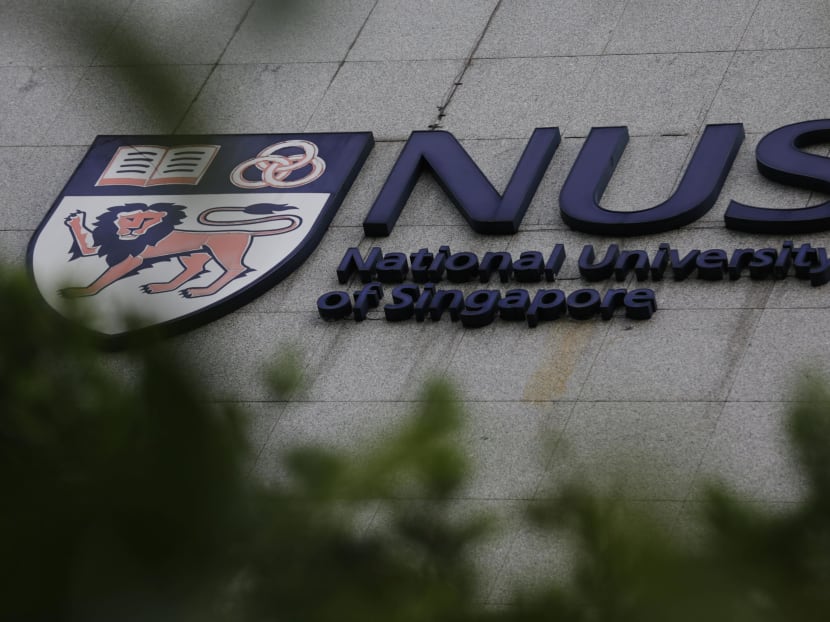NUS’ first sexual misconduct report: Students disturbed by cases linked to staff members, want more info on disciplinary actions
SINGAPORE — A head of department at the National University of Singapore (NUS) allegedly sent sexually suggestive phone text messages to an anonymous complainant. When this later became more serious and included hints of the pair having an affair, an anonymous complaint of sexual misconduct was made to the whistle-blowing unit on campus.
- From 2016 to 2020, there were 90 complaints of sexual misconduct at NUS
- One-fifth of the sexual misconduct cases involved staff members
- A fourth-year business student said he feels unsafe looking at the cases involving staff members
- Undergraduates are calling for NUS to include clearer guidelines and possible consequences in future reports
SINGAPORE — A head of department at the National University of Singapore (NUS) allegedly sent sexually suggestive phone text messages to an anonymous complainant. When this later became more serious and included hints of an affair, an anonymous complaint of sexual misconduct was made to the whistle-blowing unit on campus.
However, no further action was taken by the university and no police report was made because the complainant could not be contacted for verification.
This was one of the cases that raised eyebrows among students in NUS who spoke to TODAY on Thursday (Jan 7), a day after the university released its first report on sexual misconduct.
Fourth-year business student Kevan Chew, 24, said that he feels unsafe looking at the cases involving staff members and worries on behalf of his friends and two younger siblings aged 21 and 19, who are likely entering NUS this year and who may be less discerning.
Between 2016 and 2020, NUS received 19 complaints of sexual misconduct involving staff members.
A majority of these involved verbal or physical contact of a sexual nature, or unwanted sexual advances, or requests for sexual favours.
There were also a total of 71 sexual misconduct complaints involving students that were made between 2016 and 2020.
About a third of these complaints — or 24 incidents — involved verbal or physical contact of a sexual nature.
The university said last month that it will release a sexual misconduct report every six months as part of efforts to raise awareness of such cases. This was after incidents of this nature kept cropping up.
In one case in February last year, a male postgraduate student reported that he was sexually harassed by an administrative employee the month before when he went to the administrative unit to collect his misplaced mobile phone.
The accused allegedly touched the victim’s crotch and told him “not to lose that”.
Investigations showed that the accused admitted to touching the pocket of the victim’s pants in a joking manner but did not admit to touching his genitals.
Disciplinary actions were taken against the employee, which included a final written warning and no performance bonus and salary increment for two years. No police report was made.
In another case on Dec 2 last year, a complaint was made after two staff members allegedly had sex with a former student on the basis of “sex-for-grades”. Investigations are ongoing.
ROOM TO IMPROVE FUTURE REPORTS
Mr Chew said he was shocked that a fifth of the cases involved staff members.
“I personally consider sexual transgressions by professors and staff members significantly more serious and worrying, and I would want more transparency on the steps that NUS is taking to prevent such cases moving forward.”
Mr Foo Ce Ying, 25, a fourth-year business administration undergraduate, said that every case is equally egregious and there is “not one that is better than the other”.
“Every single case should continue to be dealt with seriously as the victims face trauma... There isn’t a case that is worse or better than the other and support should be provided and not requested.”
Mr Foo believes that more can be done even though the university’s management has been dealing with this persistent problem and releasing details of cases.
Fourth-year psychology student Nicholas Tan, 24, described the inaugural report as a “good effort” by NUS.
“Maybe it’s a bit late, but as of now, it’s the best they can do,” he said.
He added that NUS should include in future reports clearer guidelines and the possible consequences that culprits could face. For instance, by detailing exactly what action will be taken for different forms of sexual misconduct.
He also said that the university should kickstart more initiatives to educate the university community about consent.
A TIMELY RESPONSE BEFORE TERM BEGINS
Dr Mie Hiramoto, an associate professor at the department of English language and literature, is glad the report is out.
She is a member of the newly established Gender and Sexuality Research Cluster, housed in the Faculty of Arts and Social Sciences. It was set up in the second half of last year to provide a space for conversations and engagements on gender and sexualities.
“(The report is) quite descriptive and open… It shows that (the university) really tried. It wanted to respond to all this before the semester started,” she said, adding that the report is timely.
When asked about the high number of cases, Dr Hiramoto said: “I think it’s because people feel comfortable enough to speak about it. I think it speaks a lot (about the shift towards a more open culture).”
She hopes that future reports will include helpful resources for people who have witnessed or experienced such events.
TODAY had reached out to seven other staff members who all declined to comment.
Last month, in a university-wide circular, NUS president Tan Eng Chye had outlined the university's actions taken to address sexual misconduct, which includes training staff members and bystanders to strengthen the process of handling such cases.
The circular came after several cases of sexual misconduct involving NUS staff members surfaced.
One of them was Dr Jeremy Fernando, a former Tembusu College fellow, who was sacked last October after allegations of sexual misconduct made against him by two students.
Another was Professor Zheng Yongnian, the former director of its East Asian Institute, who had behaved inappropriately with a subordinate by hugging her without her consent during a work meeting.
Recently, NUS dismissed Professor Theodore G Hopf from the political science department in the Faculty of Arts and Social Sciences after it investigated an allegation of a student being sexually harassed by him.
Professor Tan said that the university plans to develop policies related to such matters that apply to both employees and students.
It will also set up a committee to look at sexual misconduct by staff members, but details are still being ironed out.
Mr Chew, the business undergraduate, said: “What’s more important is for information on future cases to be disseminated and condemned by the college as soon as reasonably possible.
“I feel that more information on the disciplinary action that will be taken on wrong-doers could have been published to demonstrate that NUS is willing to take a tougher stance beyond just training and refresher courses.”
In an email response to TODAY, student-run group Students for a Safer NUS said it recognised that the university is taking steps to be more transparent, such as releasing significant details in its investigative processes and cases.
It added that the university gives clear advice to students seeking avenues of support within the institution, which informs them of the procedures and processes, as well as the steps that victims can take.
“It enables us to see what NUS is not just doing right, but also allows us to identify and work with NUS towards addressing systemic flaws.”














